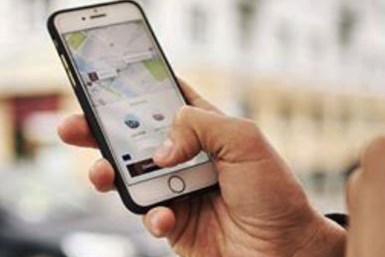Ride-Hailing Companies Score Victory in California
$200 million campaign pays off for gig companies
#legal #regulations
It will be business as usual—mostly—for Uber and Lyft in California.

Voters in the state passed Proposition 22, which allows ride-hailing companies and app-based delivery services to continue to treat drivers as independent contractors rather than employees.
The decision exempts such companies from a California law (AB5) passed last year that created more stringent standards on how workers are classified.
Under AB5, which took effect Jan. 1, so-called “gig workers” are eligible for typical employee benefits such as healthcare and paid sick time, unemployment, minimum wage, overtime and Social Security.
Expensive Fight
Contending that they are technology platforms rather than transportation service providers, driver-based gig companies have been fighting the law in court all year.
They also ponied up a lot of money to get the proposition on the ballot and make their case to voters.
The closely watched initiative was the most expensive ballot measure campaign in California history. Uber, Lyft, DoorDash, Instacart and Postmates spent a combined $205 million on Prop. 22.
On the other side, labor unions and other workers’ rights groups contributed $19 million to defeat the proposal.
Concessions
Prop. 22 includes some new benefits for drivers.
In addition to remaining independent contractors, drivers now will receive an hourly wage equal to 120% of either a local or a statewide minimum wage. The compensation is limited to when drivers are transporting passengers or on their way to pick them up, but doesn’t apply to time spent waiting to be matched with new passengers via a company’s app.
Under the new proposition, drivers also will receive a stipend for purchasing health insurance coverage based on the number of hours they drive per week.
Opponents say the health care subsidy needs to be more substantial, especially during the coronavirus pandemic.
What’s Next?
The win in California could provide a blueprint for app-based companies on how to proceed in other states.
Instead of lobbying legislators, Uber and Lyft may opt to go directly to voters. No matter how much it costs.
RELATED CONTENT
-
Self-Driving Chevy Bolt Ticketed for Driving Too Close to Pedestrian
Police in San Francisco ticketed the backup driver in a self-driving Chevrolet Bolt for allowing the car to drive too close to a pedestrian in a crosswalk in San Francisco.
-
Dubai to Test Digital License Plates
Next month Dubai will begin testing digital license plates that can display various messages, make payments and conduct other transactions.
-
Toyota Finds a Mystery in Occupant Safety for Self-Driving Vehicles
Toyota Motor Co. says its study of how people in self-driving cars react to a near crash proves it will take far more research to improve the safety of occupants in such vehicles, Automotive News reports.








